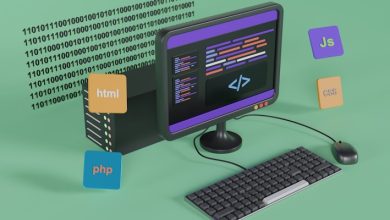Understanding Smart Contracts: The Basics and Beyond

- Introduction to Smart Contracts
- How Smart Contracts Work
- Benefits of Smart Contracts
- Potential Applications of Smart Contracts
- Challenges and Limitations of Smart Contracts
- The Future of Smart Contracts
Introduction to Smart Contracts
Smart contracts are self-executing contracts with the terms of the agreement directly written into lines of code. These contracts automatically enforce and facilitate the negotiation or performance of an agreement without the need for intermediaries. Smart contracts run on blockchain technology, making them secure, transparent, and tamper-proof.
One of the key benefits of smart contracts is their ability to automate processes that traditionally require human intervention. This automation can streamline transactions, reduce costs, and minimize the risk of error or fraud. Smart contracts can be used in a variety of industries, including finance, real estate, supply chain management, and more.
By leveraging smart contracts, parties can trust that the terms of their agreement will be executed as intended, without the need to rely on a third party. This trust is established through the decentralized nature of blockchain technology, which ensures that all parties have access to the same information and that no single entity can manipulate the terms of the contract.
Overall, smart contracts represent a significant advancement in how agreements are made and executed. By removing the need for intermediaries and automating processes, smart contracts offer a more efficient, secure, and cost-effective way to conduct business. As blockchain technology continues to evolve, the potential applications of smart contracts are limitless, paving the way for a more transparent and trustworthy digital economy.
How Smart Contracts Work
Smart contracts are self-executing contracts with the terms of the agreement between the buyer and the seller being directly written into lines of code. These contracts run on a blockchain network and automatically execute actions when predefined conditions are met. **Smart contracts** work by utilizing the decentralized and secure nature of blockchain technology to ensure that transactions are transparent and irreversible.
One key aspect of how smart contracts work is their ability to eliminate the need for intermediaries, such as lawyers or notaries, to validate the terms of the contract. This reduces costs and streamlines the process, making transactions more efficient. **Smart contracts** are stored on a blockchain, which is a distributed ledger that is maintained by a network of computers, ensuring that the contract is secure and tamper-proof.
When a smart contract is created, it is deployed to the blockchain network, where it is stored and can be accessed by the parties involved in the transaction. The code of the smart contract contains the rules and conditions that govern the agreement, and once these conditions are met, the contract is automatically executed. This automation reduces the risk of fraud and ensures that the terms of the contract are enforced without the need for human intervention.
Overall, **smart contracts** offer a more efficient and secure way to conduct transactions, as they eliminate the need for intermediaries and reduce the risk of fraud. By leveraging blockchain technology, smart contracts provide a transparent and reliable way to enforce agreements between parties. As the use of smart contracts continues to grow, they are poised to revolutionize the way transactions are conducted in various industries.
Benefits of Smart Contracts
Smart contracts offer numerous advantages that make them a popular choice for various applications. One of the key benefits is their ability to automate processes, reducing the need for manual intervention and the associated risk of errors. This automation can lead to increased efficiency and cost savings for businesses.
Furthermore, smart contracts are transparent and tamper-proof, as they are recorded on a blockchain that is immutable. This transparency helps to build trust among parties involved in a transaction, as they can verify the terms of the contract without relying on a third party.
Another advantage of smart contracts is their security. By utilizing cryptographic techniques, smart contracts ensure that the terms of the agreement are executed as intended, without the risk of fraud or interference by malicious actors.
Additionally, smart contracts can improve the speed of transactions, as they eliminate the need for intermediaries and manual processing. This can be particularly beneficial in industries where time-sensitive transactions are common, such as financial services or supply chain management.
Overall, smart contracts offer a wide range of benefits that can revolutionize how agreements are made and executed. From increased efficiency and cost savings to improved security and transparency, smart contracts have the potential to transform various industries and streamline processes for businesses and individuals alike.
Potential Applications of Smart Contracts
Smart contracts have a wide range of potential applications across various industries. These self-executing contracts can revolutionize the way agreements are made, verified, and enforced. One key application is in the field of supply chain management. Smart contracts can automate and streamline the process of tracking goods as they move through the supply chain, reducing the risk of fraud and errors.
Another potential application of smart contracts is in the realm of real estate. By using smart contracts, property transactions can be conducted more efficiently and securely. Smart contracts can help automate tasks such as title searches, escrow agreements, and property transfers, reducing the need for intermediaries and speeding up the overall process.
In the financial sector, smart contracts can be used to automate various processes, such as loan approvals, insurance claims, and payment transfers. By using smart contracts, financial institutions can reduce costs, increase transparency, and minimize the risk of fraud.
Smart contracts also have potential applications in the healthcare industry. By using smart contracts, healthcare providers can securely store and share patient data, automate billing and insurance claims, and ensure compliance with regulations such as the Health Insurance Portability and Accountability Act (HIPAA).
Overall, the potential applications of smart contracts are vast and diverse. As the technology continues to evolve and mature, we can expect to see smart contracts being used in more industries and for a wider range of purposes. By leveraging the power of smart contracts, businesses can streamline operations, reduce costs, and increase trust and transparency in their transactions.
Challenges and Limitations of Smart Contracts
Despite the many benefits of smart contracts, it is important to acknowledge that there are also challenges and limitations associated with this technology. One of the key challenges is the potential for bugs or vulnerabilities in the code that could lead to unintended consequences. Additionally, smart contracts are only as secure as the underlying blockchain technology on which they are built. If the blockchain is compromised, it could have serious implications for the smart contracts running on it.
Another limitation of smart contracts is their lack of flexibility. Once a smart contract is deployed, it is difficult to make changes to it. This can be problematic if there are errors in the code or if the terms of the contract need to be updated. Additionally, smart contracts are only as good as the data that is fed into them. If inaccurate or incomplete data is used, it could result in incorrect outcomes.
Furthermore, smart contracts rely on external data sources, known as oracles, to execute certain functions. These oracles can be a point of weakness, as they introduce a potential central point of failure. If the oracles are compromised, it could undermine the integrity of the smart contract.
The Future of Smart Contracts
The future of smart contracts is promising, as they continue to revolutionize the way transactions are conducted in various industries. These self-executing contracts are built on blockchain technology, ensuring transparency, security, and efficiency in agreements between parties. As technology evolves, smart contracts are expected to become even more sophisticated, enabling complex transactions to be automated without the need for intermediaries.
One of the key developments in the future of smart contracts is the integration of oracles. Oracles are third-party services that provide smart contracts with external data, enabling them to interact with the real world. This opens up a world of possibilities for smart contracts, allowing them to execute based on real-time information such as stock prices, weather conditions, or even sports scores.
Another exciting trend in the future of smart contracts is the rise of decentralized finance (DeFi). DeFi platforms use smart contracts to create financial products and services that are accessible to anyone with an internet connection, bypassing traditional financial institutions. This has the potential to democratize finance and provide greater financial inclusion to individuals who are underserved by the current system.
As the use of smart contracts becomes more widespread, it is crucial for individuals and businesses to understand how they work and how to use them effectively. This includes ensuring that smart contracts are properly written, audited, and implemented to prevent any potential vulnerabilities or errors. By staying informed and up-to-date on the latest developments in smart contract technology, individuals can take advantage of the benefits they offer while minimizing risks.
In conclusion, the future of smart contracts is bright, with endless possibilities for innovation and disruption across industries. By embracing this technology and staying informed on best practices, individuals and businesses can leverage the power of smart contracts to streamline processes, reduce costs, and increase trust in transactions. The potential for smart contracts to transform the way we do business is vast, making them an essential tool for the future of commerce.




